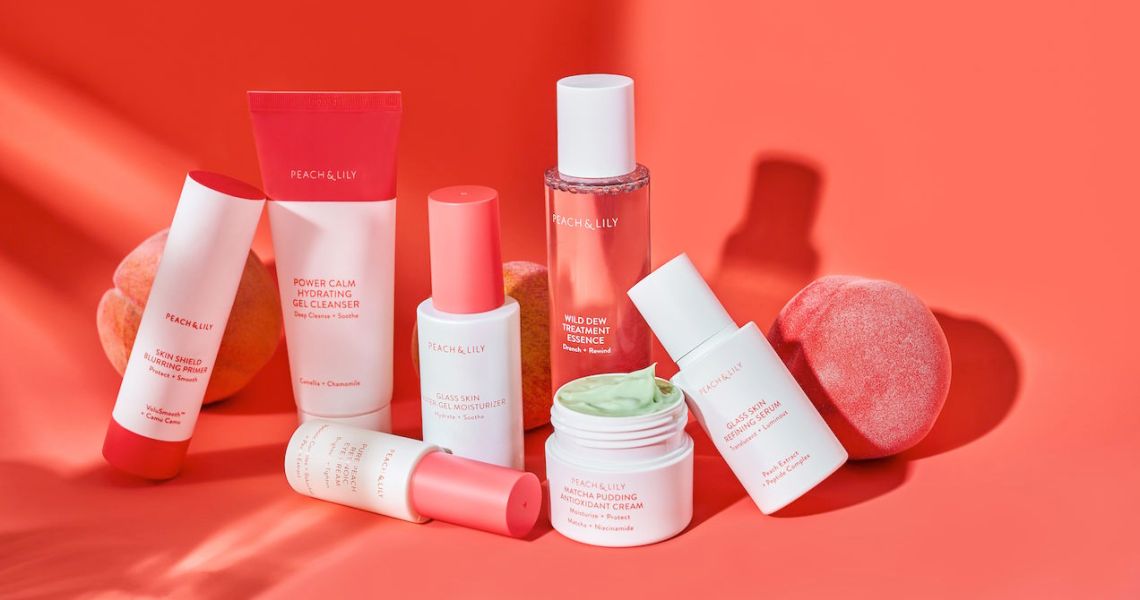K-beauty brand Peach & Lily is taking a new approach to its educational marketing, as it attempts to inverse the typical product launch strategy.
Instead of announcing a new product and spending the following weeks explaining to customers why they need or should want it, Peach & Lily is doing the opposite. From Jan. 25 to Feb. 18, the brand is educating customers and followers on social media about vitamin C as an ingredient and slightly teasing that it will launch a new product soon. Peach & Lily is tactically refraining from mentioning the vitamin C product itself and is withholding information like whether it’s a moisturizer or serum, and what percentage of vitamin C it features. Peach & Lily does not have any other vitamin C products, and the intent is to keep customers and followers focused on understanding the ingredient and its use cases.
“The [vitamin C] ingredient is the only thing that we’re deep-diving into on education, so that everyone is hyper-focused on the ingredient. That’s what people are curious about,” said Alicia Yoon, Peach & Lily founder and CEO. “This whole launch is about getting people to really understand their skin and the ingredient, and then with that knowledge, understand if this product is right for them.”
The 9-year-old company received its first institutional investment in Feb. 2020 from Sandbridge Capital. Yoon declined to share financials, but in the press release for its funding round, she stated that she planned to reach $100 million in sales “within a few years.” Peach & Lily’s sales have at least doubled yearly, with over 65% of revenue coming from repeat purchases. In 2018, the brand earned $30 million in sales, and Glossy estimates that it earned at least $60 million in 2019. Yoon declined to comment on this estimate.
Peach & Lily’s four-week marketing series began the week of Jan. 25 with a landing page located within its e-commerce blog featuring a call-to-action for visitors to ask questions and information on Vitamin C. The information was also featured in an email blast. In the week of Feb. 1, the company further built on the landing page with a video. Also this week, on social media, it will host an Instagram Live session featuring Yoon. In the weeks of Feb. 8 and Feb. 15, brand videos featuring a mix of paid and unpaid influencers and experts will be added to the page, before pre-order becomes available to Peach & Lily’s undisclosed number of email subscribers on Feb. 17. The vitamin C product launches the following day, on Feb. 18.
“If you already have strong engagement on your social profiles, it’s a great strategy,” said Siri Fomsgaard, president of marketing agency Taylor & Pond. “Giving away education can be a big advantage when you don’t also [want to look like] you’re trying to sell a product at the same time.”
So far, the vitamin C launch email led to a 300% increase in click-through to the brand’s website, compared to the average. Additionally, the brand has seen a 200% increase in engagement on Instagram Live through views and comments, about 10-times more shares of social media posts and emails, and 60% more posts saved on Instagram.
Ad position: web_incontent_pos1
Fomsgaard said a potential risk is taking too long between teasing a product debut and actually launching it, as excitement and interest could diminish. She said that three weeks should be the max lag time, dependent on how big the product innovation is.
But Yoon suggested there’s no need to rush: “In 2021, people can expect even more content from us, whether it’s related to launches or not.”




